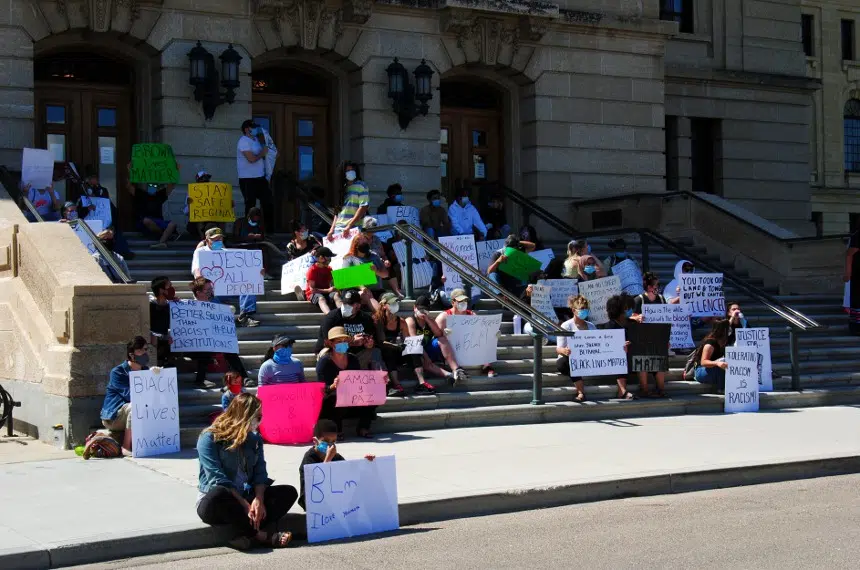Saskatchewan’s premier and chief medical health officer are repeating warnings that people who attend large rallies are at a heightened risk of contracting COVID-19.
In a media release, Dr. Saqib Shahab is quoted as saying rallies — like the one that occurred Tuesday in Regina and the one scheduled for Thursday in Saskatoon — “dramatically increase the risk of COVID transmission.”
Premier Scott Moe offered his thoughts during Thursday’s COVID-19 media conference.
“I do have concerns about any large gathering, regardless of the cause,” Moe said. “From a health-care perspective, this virus and how it spreads does not recognize the cause of the large gathering, whether it be a really good cause or whether it not be. It will spread regardless of the cause of the event.”
Moe noted residents of the province have missed large events throughout the pandemic, including funerals, weddings, family reunions.
“People have made this sacrifice to prevent the spread of this virus, so I would just ask people in the decisions they make each and every day — where they go (and) what they attend — to use very, very good judgment,” the premier said.
“(It’s important) to respect the public health orders that are in place, to abide by the physical distancing measures that are in place because quite frankly, from a health-care perspective, this virus does not distinguish why you are in or at the event you are at and the decisions you make can not only keep you safe but can also keep those around you safe.”
There currently are 29 active cases of COVID-19 in Saskatchewan, but the release from the Ministry of Health noted that 40 per cent of people who might be infectious don’t have any symptoms or else have very mild symptoms.
Large rallies can put attendees at risk and also can make contact tracing virtually impossible, the ministry said.
Currently, public health orders limit gatherings to a maximum of 10 people. On Monday, the maximum number of people who can attend an outdoor gathering in most areas of Saskatchewan is to rise to 30.
Despite the increase, the ministry said people must stay at least two metres from each other during get-togethers.
The ministry suggested organizers of rallies or protests should have attendees stay in their vehicles. If people want to walk or march, they must continue to physically distance.
People who attend also are encouraged to wear masks and continue hand hygiene, practices which organizers of Tuesday’s rally stressed.
“When (events) are happening outdoors and if there’s a compulsion to be a part of that, there were some guidelines issued (Wednesday) that are pretty straightforward,” Shahab said.
“Doing the absolute minimum (and) staying even further apart is critical, and (so is) not handing things back and forth and doing all the other things that are in those guidelines around not chanting or singing.”
According to the media release, singing and chanting “expels the virus at a greater velocity and distance. Consider using signs or banners instead.”
There have been protests across North America since George Floyd died in police custody in Minneapolis on May 25. There’s another rally scheduled for Sunday in Regina in support of the Black Lives Matter movement.
The ministry said organizers of protests and rallies should contact local public health offices for guidance.
“I think we all need to be very cautious and careful and even if you do decide to go to a type of event, I think you need to exceed the minimum guidelines (and) not try to push the envelope,” Shahab said. “And I think that will remain critical in the next weeks to months.”







